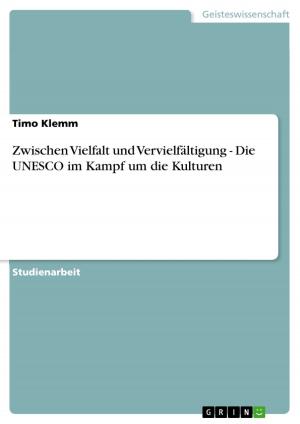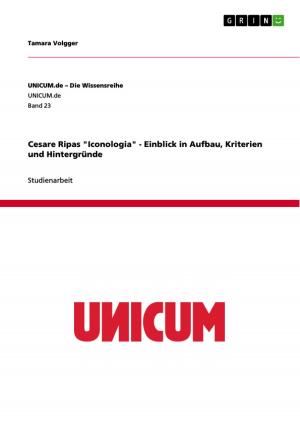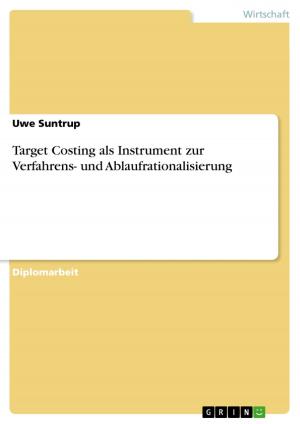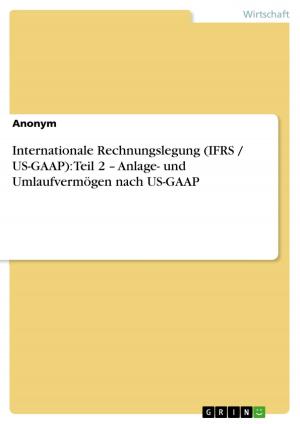Oil boom in Nigeria and its consequences for the country s economic development
Nonfiction, Reference & Language, Study Aids, ESL, Foreign Languages| Author: | Irina Romanova | ISBN: | 9783638605847 |
| Publisher: | GRIN Verlag | Publication: | February 3, 2007 |
| Imprint: | GRIN Verlag | Language: | English |
| Author: | Irina Romanova |
| ISBN: | 9783638605847 |
| Publisher: | GRIN Verlag |
| Publication: | February 3, 2007 |
| Imprint: | GRIN Verlag |
| Language: | English |
Seminar paper from the year 2007 in the subject English Language and Literature Studies - Culture and Applied Geography, grade: 1,3, University of Paderborn, course: Commonwealth of Nations, 34 entries in the bibliography, language: English, abstract: The energy sector plays a vital role in Nigeria's economy since the country is endowed with abundant energy resources, such as oil, gas, coal and water. Oil was discovered in 1958 and has since the early 1970s dominated the economy. Today, Nigeria is the largest oil producer in sub-Saharan Africa and since 1971 a member of OPEC, with an estimated production volume of 2.413 million barrel/day (2005). This makes it the world's sixth largest producer. Since 1960, Nigeria has reaped an estimated US$600 billion in oil revenue. At the same time, Nigeria has the third highest number of poor people in the world, after China and India. With a per capita income of about US$ 350, around 70 million Nigerians are living on less than one US Dollar a day. Low human development level, social conflicts and enviromental degradation are just a few problems which chararterize the current state of development in Nigeria. The question to be asked is why a country such as Nigeria which is highly endowded with one of the most valuable resources has faired disproportionally badly in economic and social terms? Why has so little been done in terms of human development? Besides, the Niger Delta region - the main producer of oil in Nigeria - though being the engine of Nigeria's economy, also presents a paradox, because the vast oil revenues have barely touched the delta's own pervasive local poverty. Vast natural resource reserves have many implications. They may affect socio-economic and political developments of the country as well as have considerable enviromental implications. While natural resource reserves (oil and other mineral resources) constitute a potential blessing for the country that owns them, they turn out to be a curse in most cases.
Seminar paper from the year 2007 in the subject English Language and Literature Studies - Culture and Applied Geography, grade: 1,3, University of Paderborn, course: Commonwealth of Nations, 34 entries in the bibliography, language: English, abstract: The energy sector plays a vital role in Nigeria's economy since the country is endowed with abundant energy resources, such as oil, gas, coal and water. Oil was discovered in 1958 and has since the early 1970s dominated the economy. Today, Nigeria is the largest oil producer in sub-Saharan Africa and since 1971 a member of OPEC, with an estimated production volume of 2.413 million barrel/day (2005). This makes it the world's sixth largest producer. Since 1960, Nigeria has reaped an estimated US$600 billion in oil revenue. At the same time, Nigeria has the third highest number of poor people in the world, after China and India. With a per capita income of about US$ 350, around 70 million Nigerians are living on less than one US Dollar a day. Low human development level, social conflicts and enviromental degradation are just a few problems which chararterize the current state of development in Nigeria. The question to be asked is why a country such as Nigeria which is highly endowded with one of the most valuable resources has faired disproportionally badly in economic and social terms? Why has so little been done in terms of human development? Besides, the Niger Delta region - the main producer of oil in Nigeria - though being the engine of Nigeria's economy, also presents a paradox, because the vast oil revenues have barely touched the delta's own pervasive local poverty. Vast natural resource reserves have many implications. They may affect socio-economic and political developments of the country as well as have considerable enviromental implications. While natural resource reserves (oil and other mineral resources) constitute a potential blessing for the country that owns them, they turn out to be a curse in most cases.















